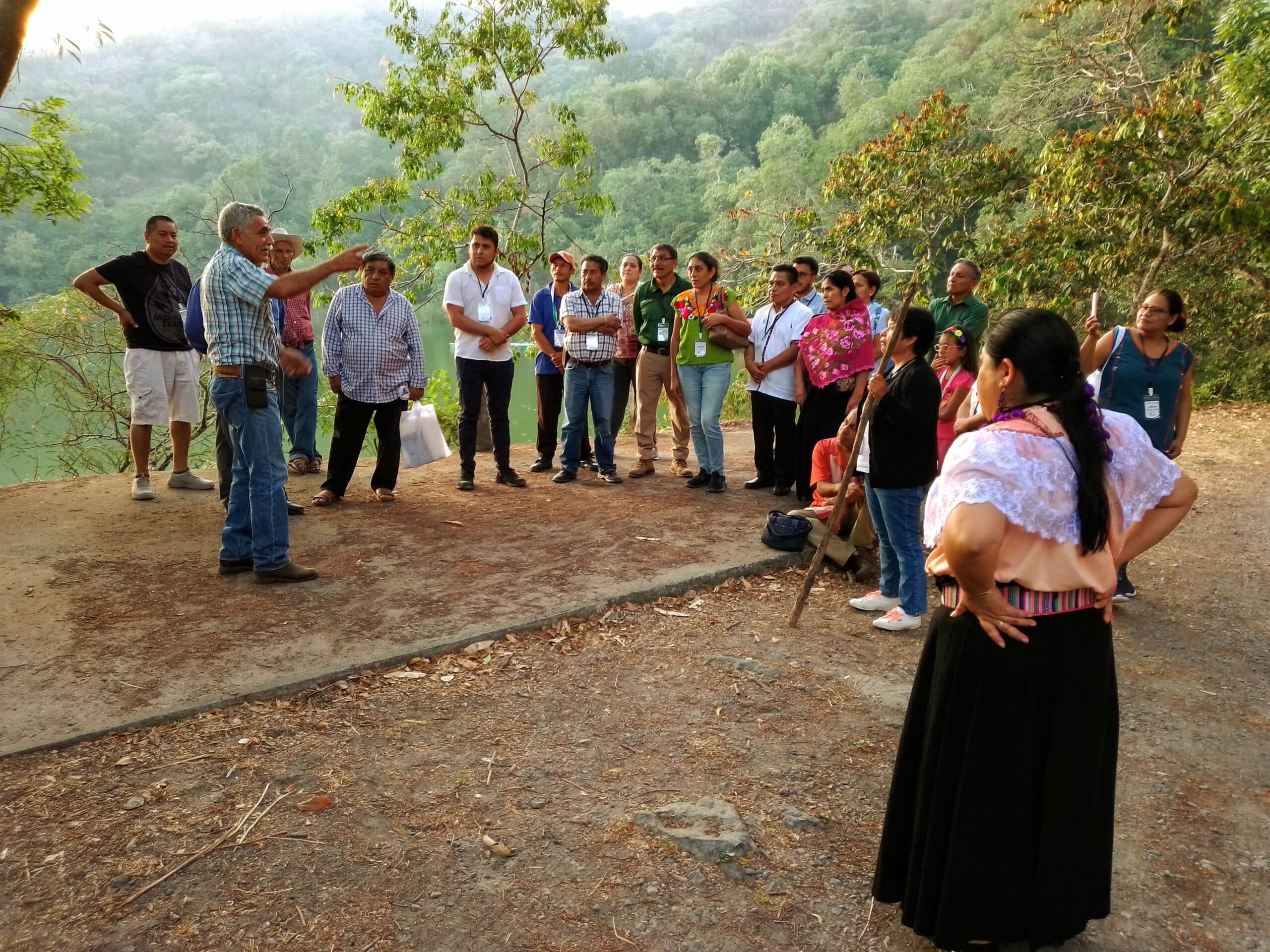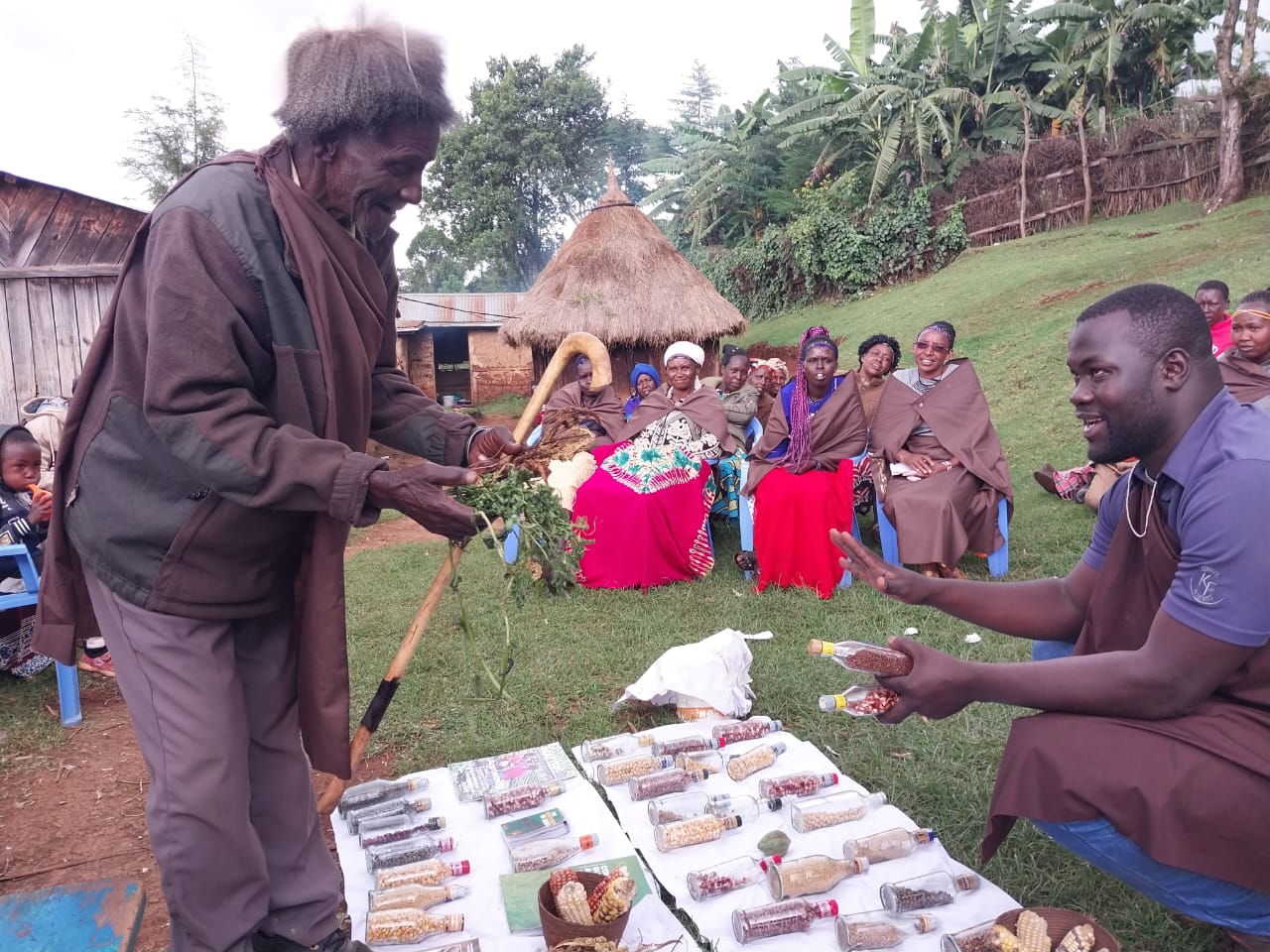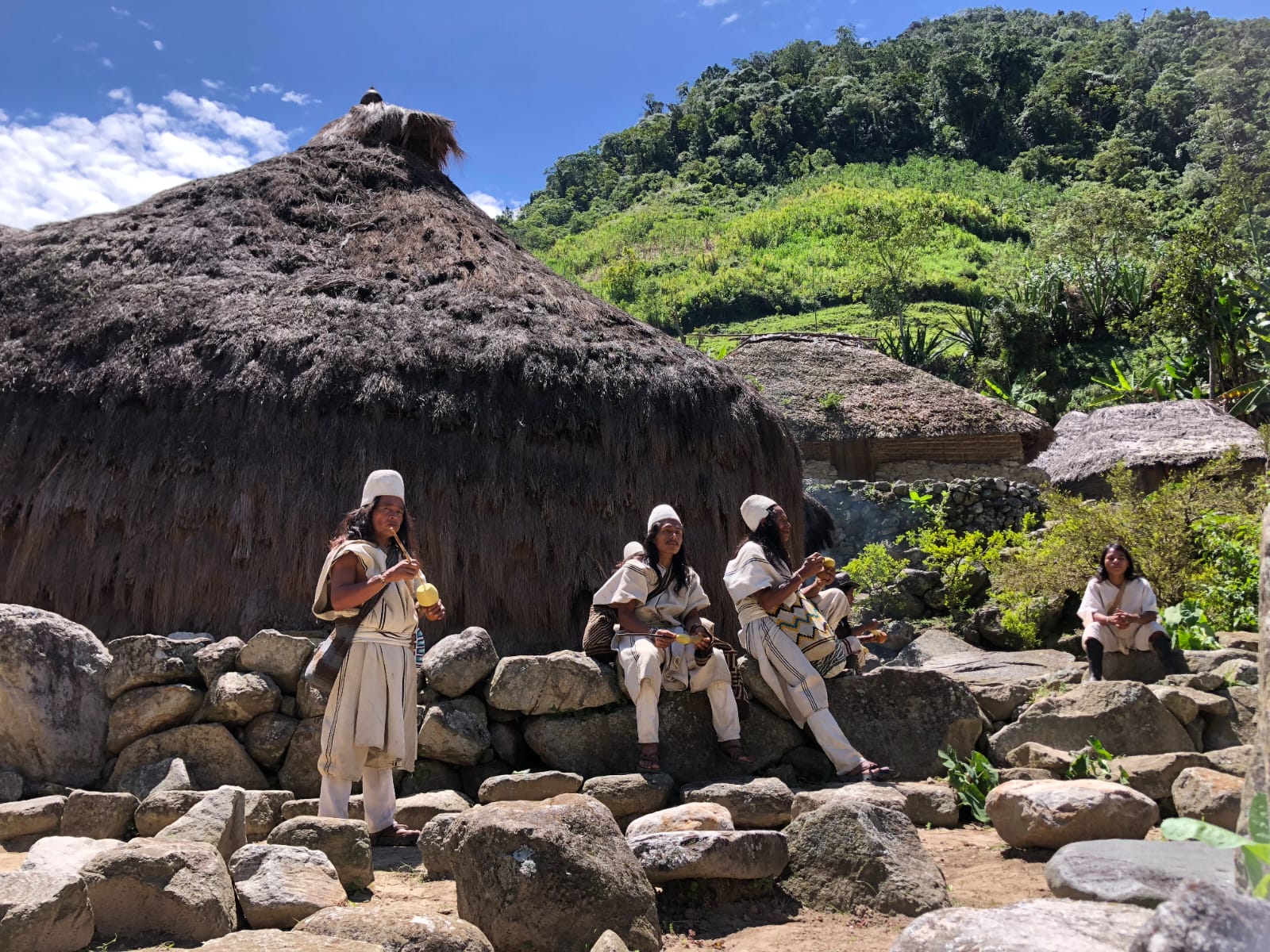On the 17th and 19th of January, Land is Life hosted two virtual knowledge exchange workshops between Indigenous communities and organizations from Sub-Saharan Africa and Mesoamerica, focusing on agroecology. We invited participants from the two regions to get together virtually and share experiences of agroecology in different environmental and cultural conditions, to define problems in common, and to look for solutions to challenges regarding Indigenous food sovereignty.
Agroecology refers to a range of agricultural practices that alongside food production enhance biodiversity. Land is Life’s approach to agroecology highlights its cultural and social aspects – agroecological processes need to be defined by the communities themselves, based on their traditional knowledge, values, and local resources. Agroecology should serve as a methodology to strengthen Indigenous rights by having communities exercise self-determination over what they eat and how it is produced.
The first workshop focused on the context of Sub-Saharan Africa. It brought together representatives from Indigenous organizations from across seven African countries to discuss opportunities, challenges, needs, and existing practices regarding agroecology in the region. According to Samuel Ndobe from Cameroon, “agroecology used to be something that our great-grandparents practiced, before being colonized and introduced to monocultures and high input agriculture.” Today, it is generally viewed as a backward and unproductive practice, and thus suffers from a lack of political support and funding. The most pressing needs defined by the participants were improved access to land, community-led initiatives, water harvesting and storage systems, Indigenous seed banks, access to markets, as well as research and education on agroecological farming.
In the second workshop, experiences and thoughts were shared between participants from Sub-Saharan Africa and Mesoamerica. Three Miskitu representatives from Karata Indigenous Territory in Nicaragua, shared their experiences of agroecological restoration. The restoration process started after two powerful hurricanes hit Central America in late 2020 and destroyed the entire food system of Karata, based on ancestral fishery and agroforestry. Land is Life initiated the restoration process in 2021 by providing two Miskitu communities with tools to develop agro-ecological restoration strategies based on their own governance systems. The team has since promoted an agroecological ordering plan, as well as recovery practices for genetic material for traditional use in agroforestry crops in both Miskitu communities.
The two hurricanes are not single events but examples of natural disasters that are becoming increasingly more common due to intensifying climate change – a major threat to food security shared by the participants from Mesoamerica and Sub-Saharan Africa. Several participants pointed out the potential of agroecology as a tool to mitigate, as well as adapt to climate change. Crop diversity, for example, adds to carbon sequestration, water regulation, pollination, pest control, nutrient cycling, and soil fertility, subsequently mitigating the adverse effects of the climate crisis. Leonida Odongo from Haki Nawiri Afrika, Kenya, encouraged people to begin with taking a close look at the soil, as a healthy soil forms the base for sustainable food production. She also shed light on agroecology as a tool for women’s empowerment. It tends to be men who have control over the resources even though the majority of food producers in Sub-Saharan Africa are women.
Many voices from the two regions highlighted the role of agroecology not only as a set of practices but also as a global movement that unites Indigenous food producers around the world. It has the potential to act as a tool to fight common struggles that Indigenous peoples and their food systems are facing globally.
We thank all those who joined and participated in these exchanges, and we look forward to partnering in future discussions around increasing food sovereignty. Land is Life hopes to replicate its Mesoamerica strategy to build out approaches to promote food system resilience across our Sub-Saharan network.



